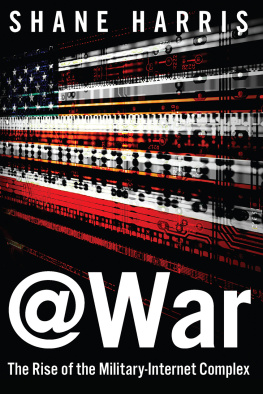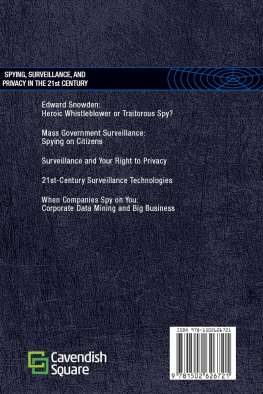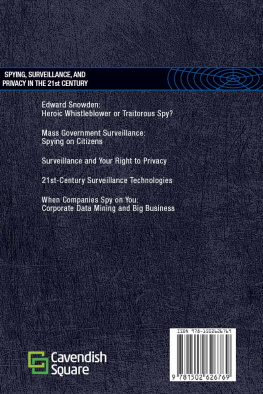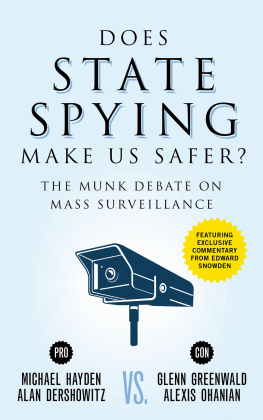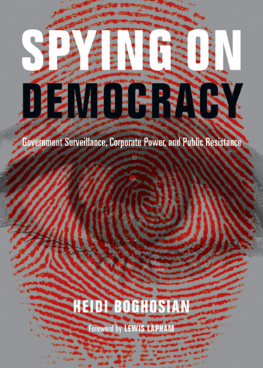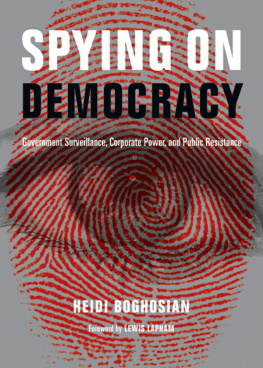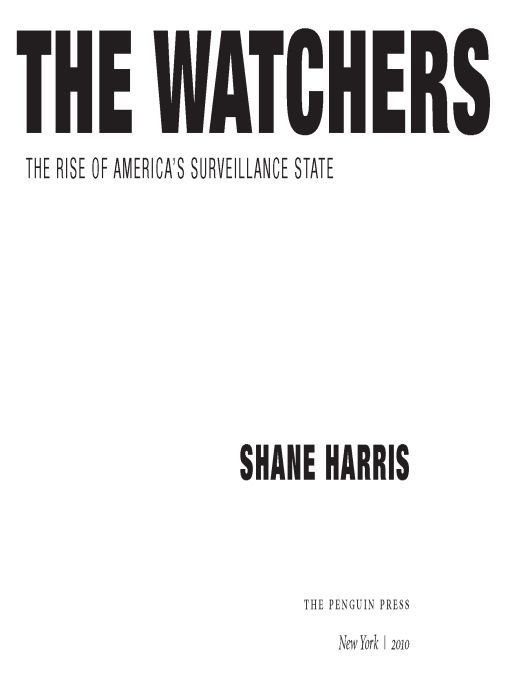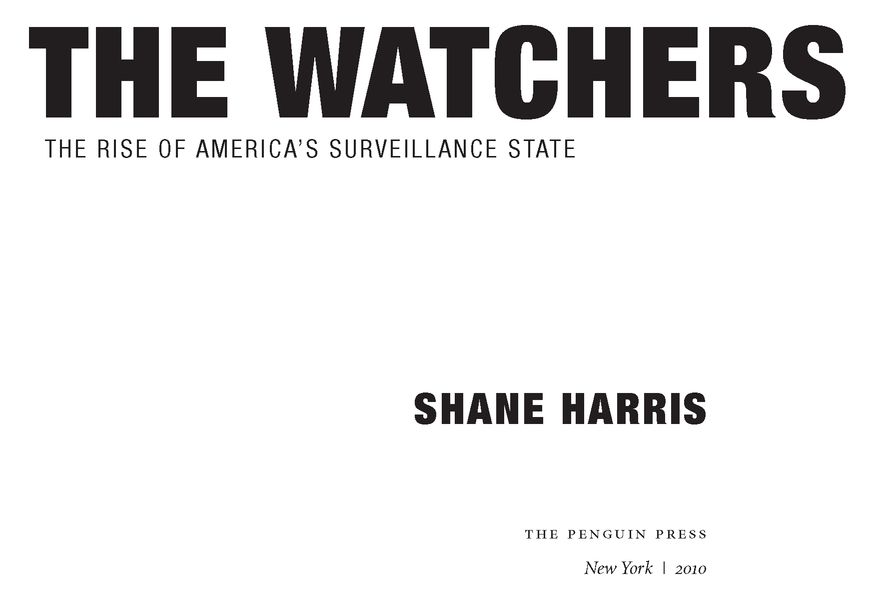Table of Contents
For my grandmother, Bettiann Kinney,
who taught me to tell stories
INTRODUCTION
To me, 9/11 never felt like the beginning of a story. Nor the ending. It always felt like the middle.
I woke up on September 11, 2001, far from the center of the actionin a quiet hotel room in Palm Springs. Id been working at a magazine in Washington, D.C., for nine months, writing about the information technology business in the federal government. Id planned my first real vacation for mid-September. On Day 2, I awoke to an urgent phone call from a friend back home, who insisted that I turn on the television.
Its the reporters instinct to write and talk about what he can see, or about what he knows to be true. But as the television came into focus, the stunned silence from news broadcasters told me that no one could explain the enormity of what we all were watching. The South Tower of the World Trade Center had fallen. The North Tower was burning. The Pentagon had been hit. My friend was standing on the roof of a building in northwest Washington, watching the smoke rise over the Potomac River. The attack, I learned later, was almost finished. I had jumped into the story midstream.
I returned to Washington the day the federal government authorized commercial aircraft to fly again. Back at the magazine my editor instructed me to figure out how what I wrote about every day connected to this new, rapidly developing narrative. I spent the next six years figuring that out, and one more writing this book.
One of the first themes to emerge from the 9/11 attacks soon became a familiar refrain: The government had failed to connect the dots about terrorism, specifically the Al Qaeda network. It wasnt widely known that some of the 9/11 hijackers were already on terrorist watch lists when they entered the United States. Mysterious phone calls intercepted on September 10, which hinted at the next days calamity, werent translated in time to be of any use. No oneno systemhad gathered all the pieces of the puzzle and put them together.
Because Id been writing about how government agencies acquired and then used information technology, I understood the bureaucracys language. Those elusive dots were actually data. They were discrete pieces of information that intelligence, law enforcement, and security agencies either hadnt shared with one another or had failed to collect in the first place. My technology beat quickly became an intelligence beat. And thats when I became acquainted with a group of people who had painfully understood what I had only suspected. This story didnt begin on 9/11. And it wouldnt end there.
I call them the Watchers. They are a little-known and little-understood band of mavericks whove spent most of their careers working in the intelligence and national security agencies of the government. They are united by a common conviction: They believe they could have stopped the 2001 attacks if they had only been allowed to try.
The Watchers know better than anyone that the signals of terrorism were out there, waiting to be detected in a sea of noise. They have spent the past quarter century working to perfect a system that can make sense of all that noise. For them the attacks of 9/11 resonated on a particularly haunting level. Theyd been expecting this moment, had worked hard to prevent it, and when it happened, they felt emboldened, and entitled, to act.
The Watchers are not always who they seem to be. First and foremost, they consider themselves patriots, and they are convinced that the future of national security depends on detecting and preempting attacks before they occur. But they are also the architects of secretive surveillance programs, watch lists, and data mining regimes that operate largely unchecked, and sift through innocent peoples everyday electronic transactions in search of tell-tale clues. The Watchers are both guardians and spies, protectors of security and renegades of the law. They make no apologies for their preferred path to security, which many leaders of American intelligence have long shunned as the gateway to a police state. That critique is nothing new to them. The Watchers have been fighting their own establishment for as long as theyve been fighting terrorists, since the first salvo of a new era in war.
It was October 23, 1983, when a suicide truck bomber set off twelve thousand pounds of explosives in the lobby of the Marine barracks in Beirut, Lebanon. Thats where this story begins. The attack on the Marines, who were deployed as part of an international peacekeeping mission, introduced Americans to the concept of suicide bombing by religious extremists. That term has woven itself into our popular lexicon, but a quarter century ago this style of attack was something new andtrue to formterrifying. It was preceded by a suicide attack on the American embassy in Beirut. Taken together they form the starting point in a war fought largely in shadow, one that saw its bloodiest turn in the events of September 11, 2001, and continues to play out toward an uncertain end.
Unlike any war in American history, this one has been driven almost entirely by the covert gathering and use of intelligence, represented in the form of those ever illusive dots. And unlike most of the nations wars, the casualties are not always counted in those killed and wounded. The rule of law, as well as our decidedly modern notions of privacy, are confronted in this fight, because in order to detect the signs of the next assault, the Watchers believe that they must be prepared to watch everyone and the seemingly benign things they do every day. What they buy. Whom they call. Where they travel. The 9/11 attacks confirmed the Watchers deeply held conviction that surveillance and aggressive analysis of information offer the best hope of preventing the next attack. The plot was executed by a small number of men who had assimilated into American life and slipped through the cracks of a cold war intelligence system that was designed to confront nation-states, not rogue actors. The attackers used the tools of modern communications and an open society to their advantage and pulled off their murderous rampage under the Watchers noses.
The Watchers insist that they are defenders of civil liberties and a core of enshrined values and rights that distinguish the United States among great nations. But on that score, many people see an inherent contradiction. How can they propose to extend a net of largely unchecked government surveillance and proclaim themselves the guardians of constitutional virtues and personal privacy? Its a fair question. In seeking to answer it I discerned a much more complicated and compelling story than what has been told so far.
After years of reporting marked by hundreds of interviews with authorities on terrorism, technology, and the law, I came to know the Watchers. I covered some of them as a journalist when they held senior positions in government. A number of them I came to call friends, which posed a considerable challenge whenever I had to write unflattering things about their lives, their ideas, and their actions. It is never easy to disappoint people whom youve come to respect. But I chose to tell their stories, including the parts theyd rather forget, because these people are the faces behind the war on terror. They are human, and far more complex and confusing than the caricatures some have painted of them. Until we understand the Watchers, and the goals they pursue, I dont think that we can confront the conflict between security and liberty that lies at the heart of this war.


